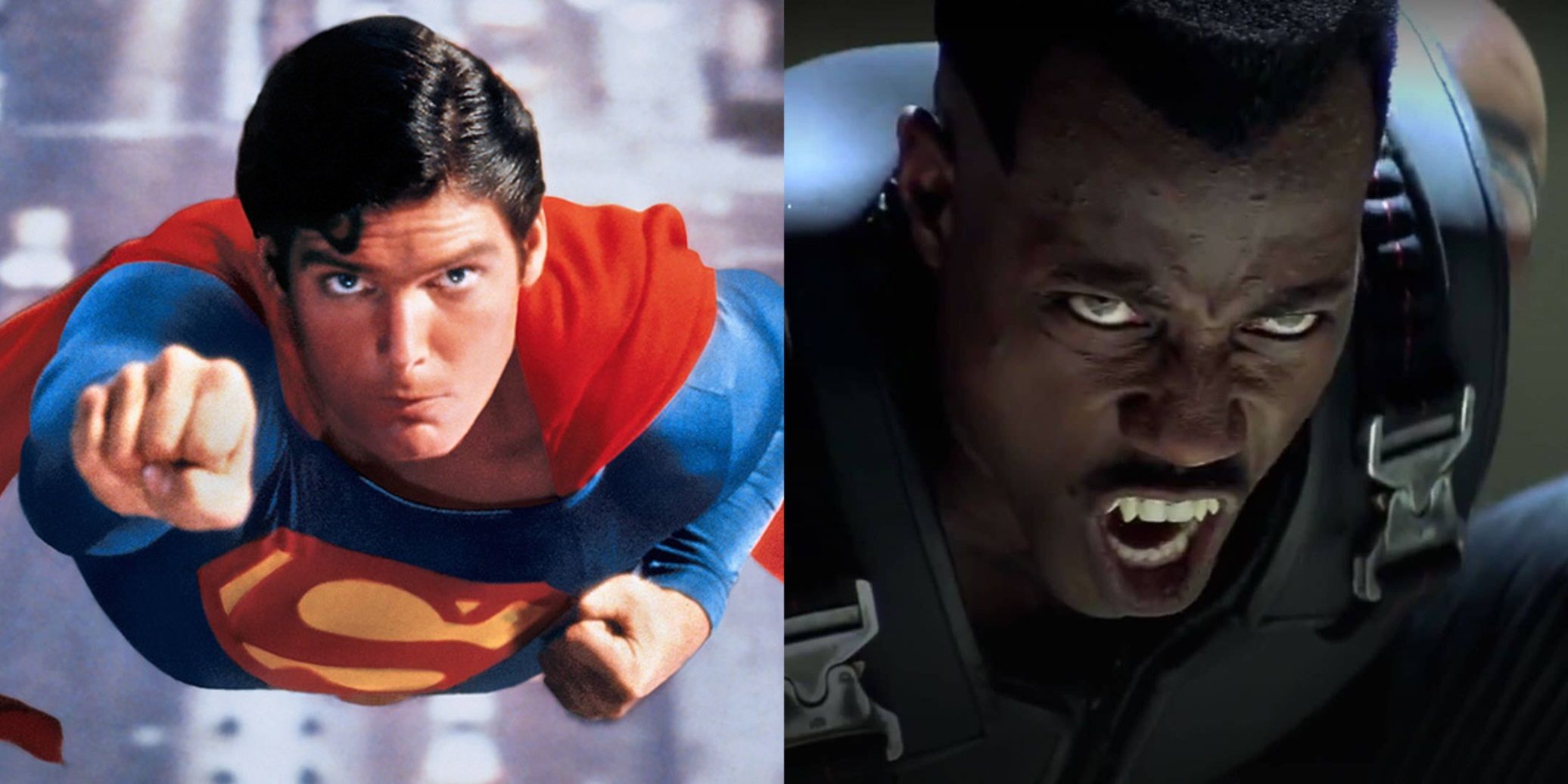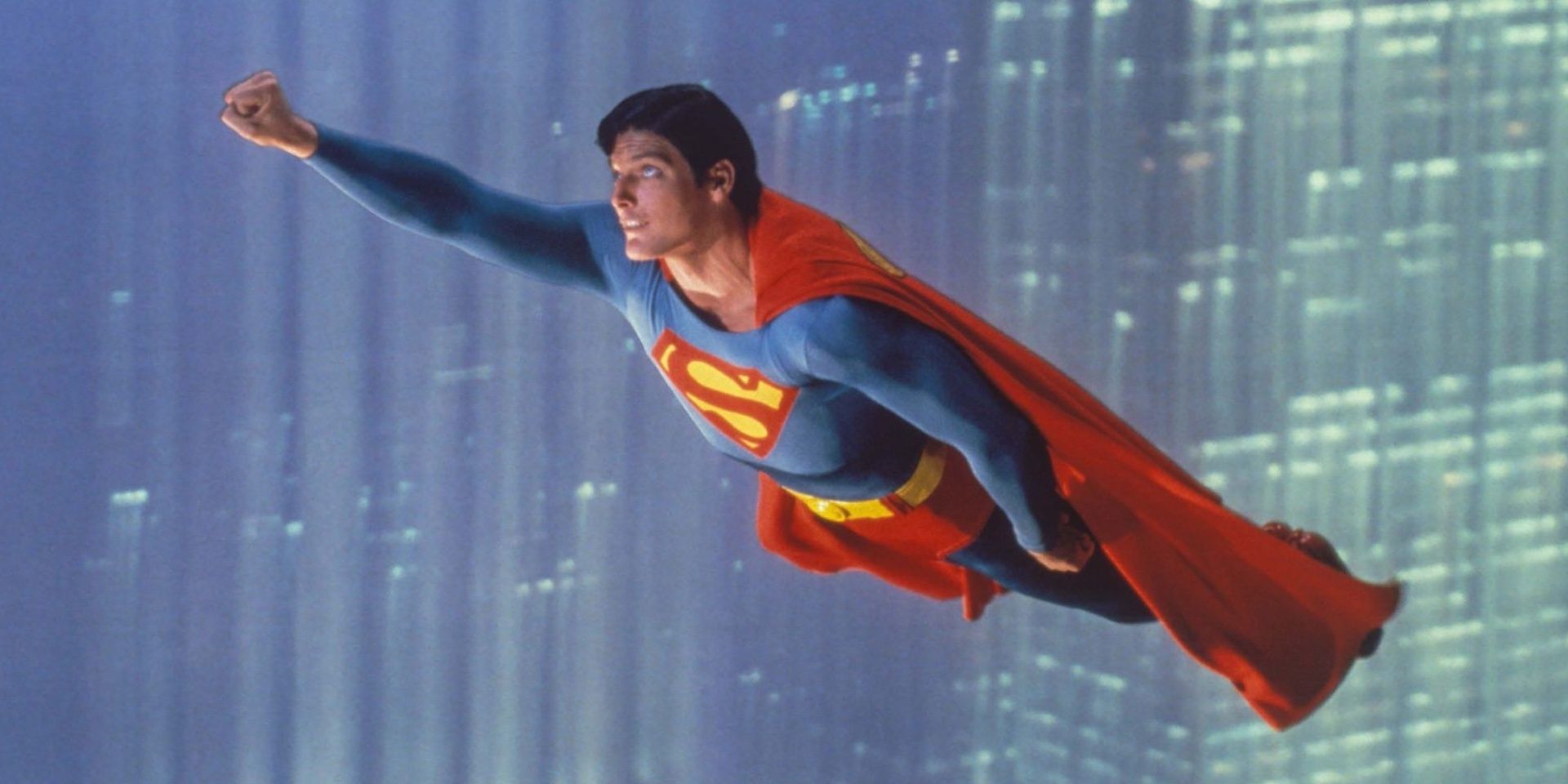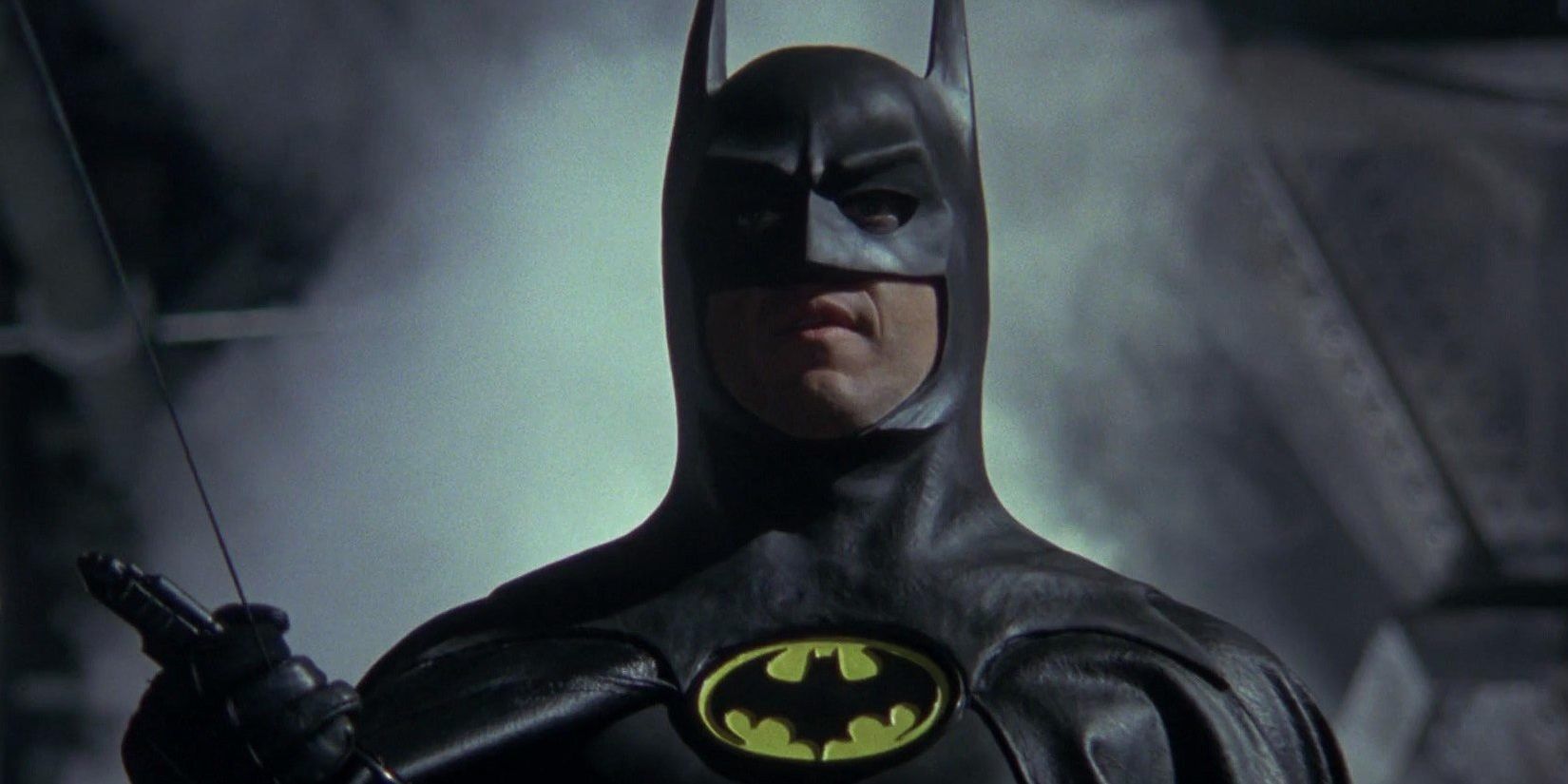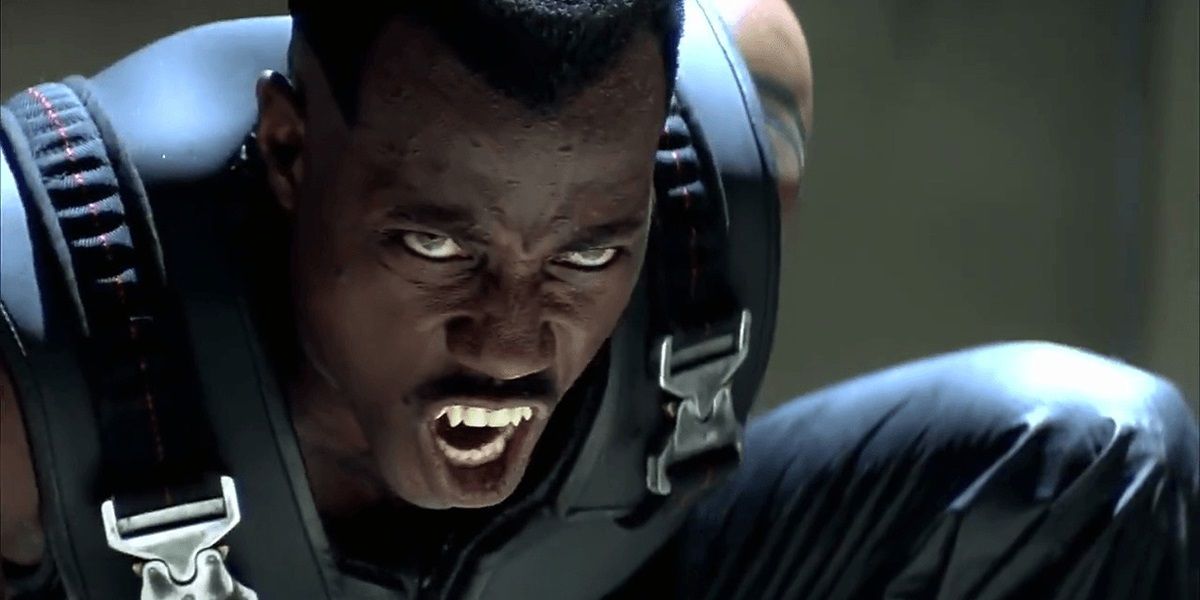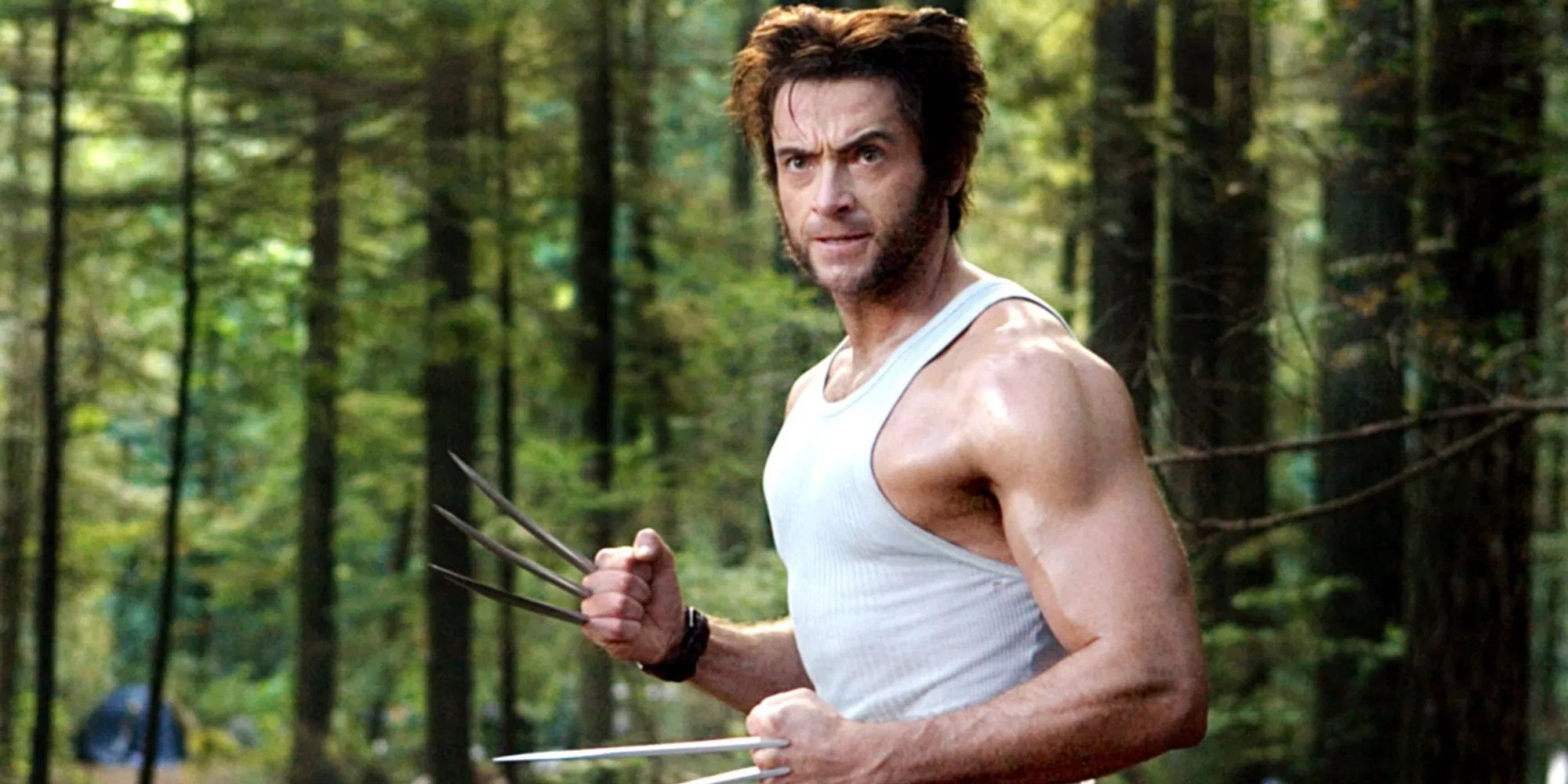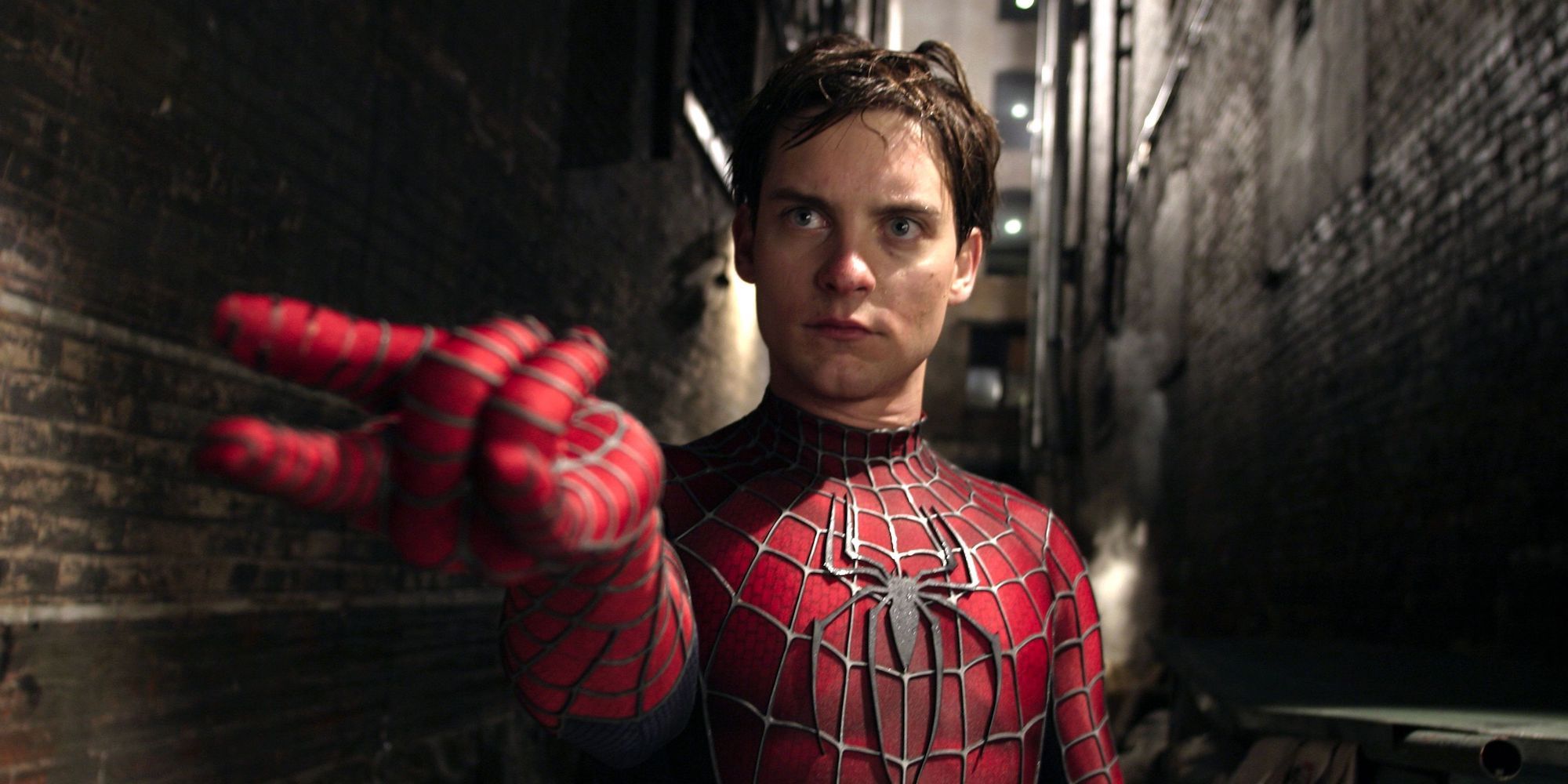Kevin Feige has revolutionized blockbuster cinema with the shared continuity and serialized storytelling of the Marvel Cinematic Universe. Now, every Hollywood studio is trying to create its own cinematic universe that audiences will want to visit multiple times a year, and very few have succeeded in replicating that success. But the MCU isn’t an entirely original creation. Aside from taking its characters and storylines from existing source material, the MCU also takes influence from a handful of previous superhero movie franchises.
Groundbreaking comic book movie series like Superman and Batman – and even previous Marvel adaptations like X-Men and Spider-Man – blazed the trail for the MCU. If it hadn’t been for the work of Richard Donner, Tim Burton, and Wesley Snipes, the MCU might not exist today.
Superman
Richard Donner’s original 1978 Superman movie was the first to prove the blockbuster potential of comic book adaptations. Christopher Reeve’s iconic performance ripped the Man of Steel’s characterization from the pages of comic books and blew it up onto the big screen. The first movie’s famous tagline read, “You’ll believe a man can fly.” While the visual effects are somewhat dated, Reeve’s Supes is still a hero that audiences can look up to.
The Superman movies haven’t always perfectly captured the spirit of the character and told a timeless adventure story – the later Reeve movies were critically panned and Zack Snyder’s take has been criticized as too dark and gritty – but the first two movies both hold up as masterpieces of the genre. In fact, Marvel Studios head honcho Kevin Feige still rewatches Superman with his team before shooting every MCU movie, because he considers it to be the gold standard of superhero cinema.
Batman
The Adam West-starring Batman series was one of the biggest TV shows of the 1960s. Tim Burton’s dark, edgy reinvention of the property on the big screen in 1989 turned it into one of the biggest movie franchises of all time. Michael Keaton returned for a sequel before relinquishing the role to a succession of such actors as Val Kilmer, George Clooney, Christian Bale, Ben Affleck, and Robert Pattinson.
All the darkest comic book movies – including the MCU’s own Captain America: The Winter Soldier and the last two Thanos-centric Avengers movies – owe a debt to Burton’s Batman films. Christopher Nolan’s wildly acclaimed The Dark Knight stole some of the superhero movie limelight from MCU forerunner Iron Man in the summer of 2008.
Blade
Wesley Snipes can claim a lot of the credit for the MCU’s success, because his Blade trilogy was the first ever blockbuster Marvel superhero franchise. Howard the Duck was the first Marvel character to be adapted for the screen, but his movie tanked both critically and commercially. Blade was the hit that proved the Marvel universe was a lucrative goldmine for Hollywood’s investors.
Almost everything that fans love about the Blade character today came from Snipes’ semi-improvised performance in the movies. Snipes made quippy one-liners the norm in comic book movies – now, the MCU is defined by its quips. In the post-credits scene of Eternals, Blade finally joined the MCU – albeit introduced off-screen – with Oscar-winning icon Mahershala Ali replacing Snipes in the role.
X-Men
The now-familiar MCU formula can be traced back to Bryan Singer’s early X-Men movies. What made the X-Men franchise such a resounding success out of the gate was its ability to mix action spectacle with real human emotions and relevant themes. The movies reimagined the social commentary of the original source material. The early comics from the 1960s were based on the Civil Rights Movement, but the movie used the characters as an allegory for the LGBTQ community. Traditionally, mutants are symbolic of all marginalized groups, and the movies maintained this tradition.
The narrative structure of X2 – splitting up the heroes in the opening act, then slowly bringing them back together for the action-packed finale – created the template for big MCU team-ups like Avengers: Infinity War and Spider-Man: No Way Home. Fox’s incarnation of the X-Men franchise came to an unceremonious ending with Dark Phoenix, but it did get a perfect bittersweet swansong in the form of 2017’s Logan.
Spider-Man
Sam Raimi’s Spider-Man trilogy transplanted the traditional “hero’s journey” outlined by Joseph Campbell into the comic book movie genre. Raimi presented a superhero who was relatably human and a delightfully wholesome Tobey Maguire made his name as the definitive on-screen portrayal of Peter Parker – sweet, awkward, and unwaveringly driven to do the right thing. The trilogy is let down by its bloated, inconsistent threequel (and especially the symbiote subplot and its infamous “Now, dig on this!” scene) but Spider-Man 2 is still widely considered to be the greatest comic book movie ever made.
The early Maguire-starring Spider-Man movies made the MCU possible in a more literal sense than any of the other entries on this list because the continuity of Raimi’s trilogy has actually been revived within the MCU’s overarching narrative. If Raimi’s trilogy didn’t exist, then Spider-Man: No Way Home – one of the MCU’s greatest triumphs – would’ve undoubtedly turned out very differently.

